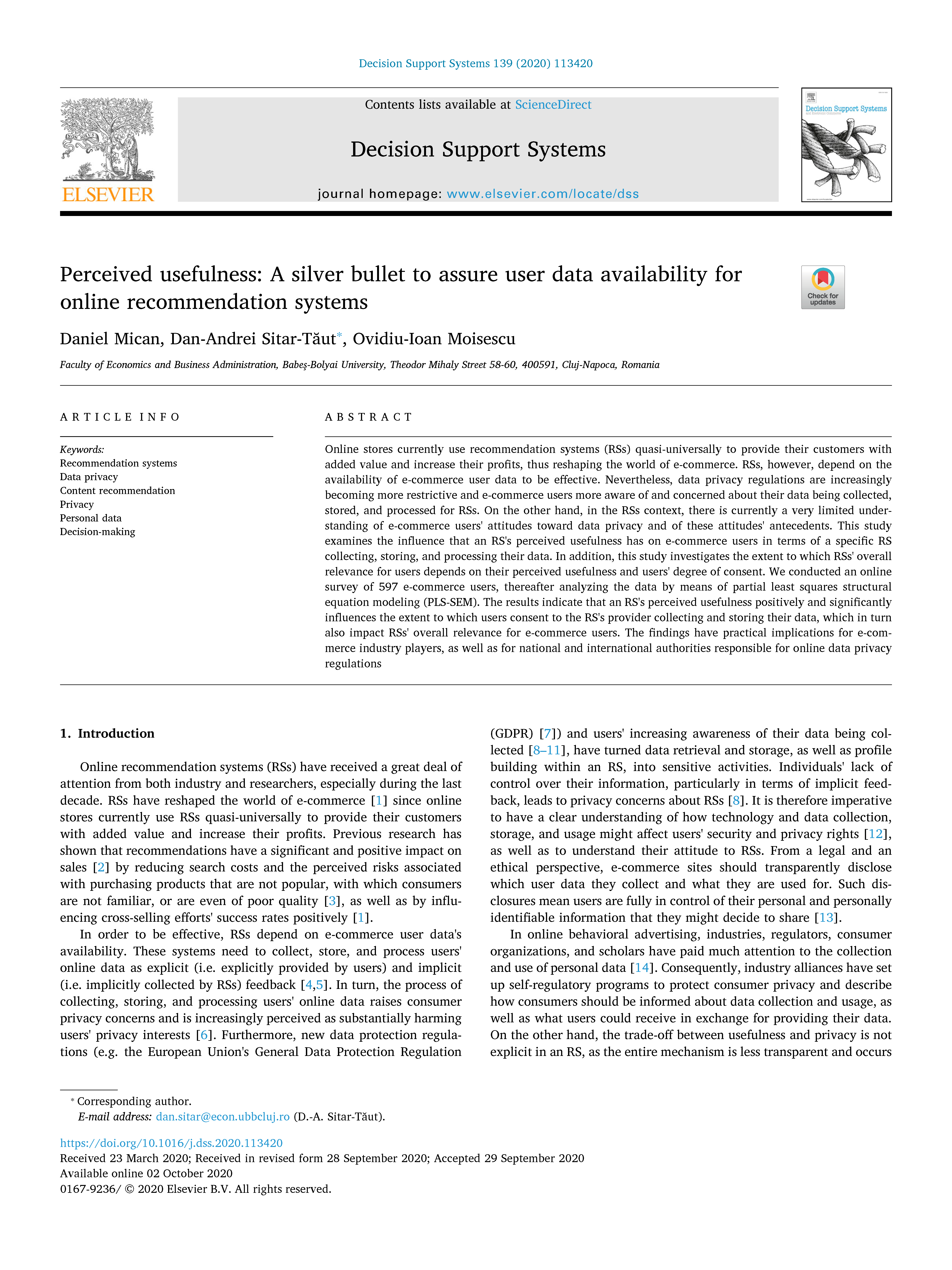|
|
|
Mican, D., Sitar-Tăut, D.A. & Moisescu, O.I. (2020) Decision Support Systems [Core Economics, Q1]
Autor:
Ovidiu Ioan Moisescu
Publicat:
06 Noiembrie 2020
Mican, D., Sitar-Tăut, D.A. & Moisescu, O.I. (2020) Perceived usefulness: A silver bullet to assure user data availability for online recommendation systems. Decision Support Systems, 139, 113420.
DOI: https://doi.org/10.1016/j.dss.2020.113420
✓ Publisher: Elsevier
✓ Web of Science Core Collection: Science Citation Index Expanded; Social Sciences Citation Index
✓ Categories: Operations Research & Management Science; Computer Science, Information Systems
✓ Article Influence Score (AIS): 1.398 (2020) / Q1 in all categories
Abstract: Online stores currently use recommendation systems (RSs) quasi-universally to provide their customers with added value and increase their profits, thus reshaping the world of e-commerce. RSs, however, depend on the availability of e-commerce user data to be effective. Nevertheless, data privacy regulations are increasingly becoming more restrictive and e-commerce users more aware of and concerned about their data being collected, stored, and processed for RSs. On the other hand, in the RSs context, there is currently a very limited understanding of e-commerce users' attitudes toward data privacy and of these attitudes' antecedents. This study examines the influence that an RS's perceived usefulness has on e-commerce users in terms of a specific RS collecting, storing, and processing their data. In addition, this study investigates the extent to which RSs' overall relevance for users depends on their perceived usefulness and users' degree of consent. We conducted an online survey of 597 e-commerce users, thereafter analyzing the data by means of partial least squares structural equation modeling (PLS-SEM). The results indicate that an RS's perceived usefulness positively and significantly influences the extent to which users consent to the RS's provider collecting and storing their data, which in turn also impact RSs' overall relevance for e-commerce users. The findings have practical implications for e-commerce industry players, as well as for national and international authorities responsible for online data privacy regulations.

inapoi la stiri  vezi evenimentele
vezi evenimentele  home
home 
|